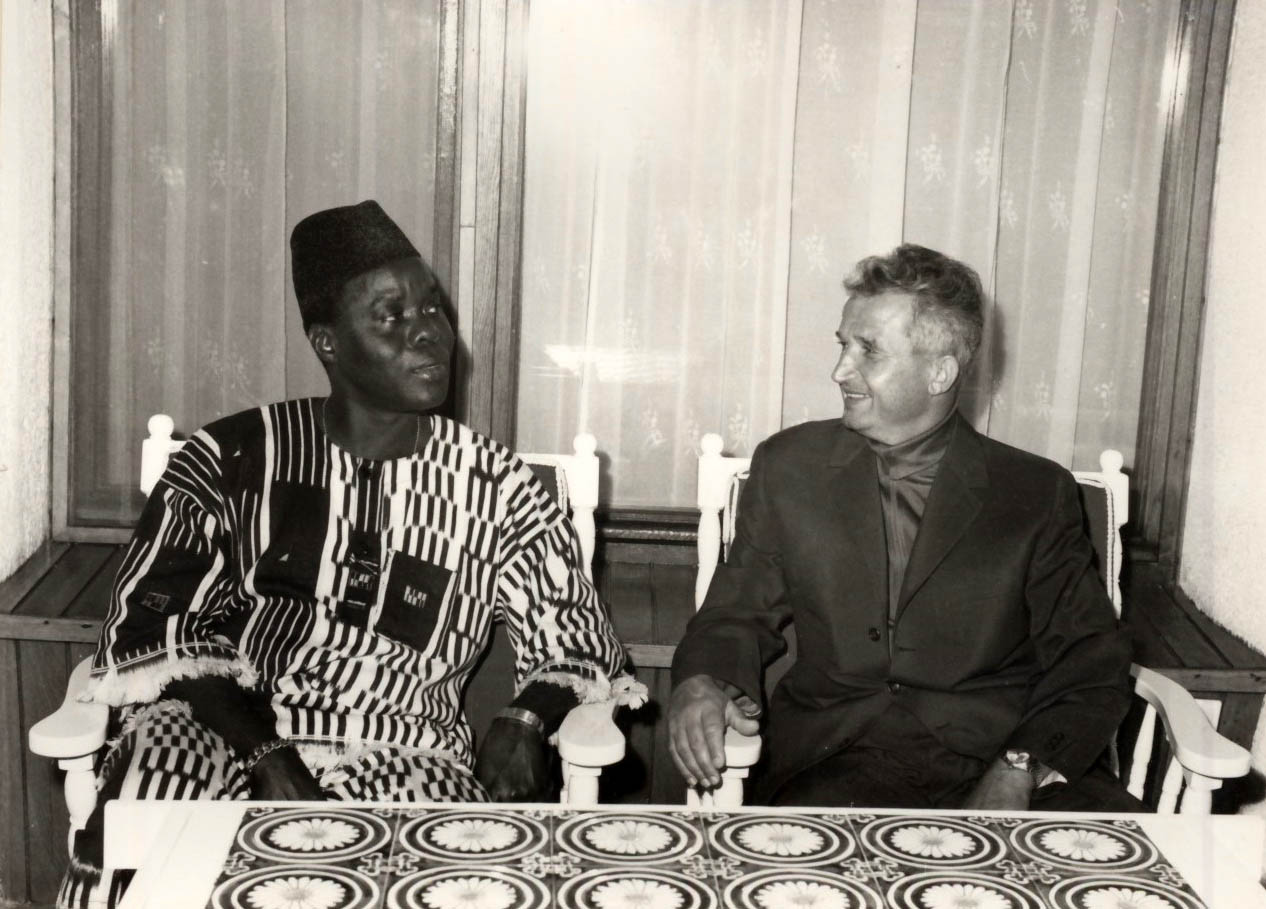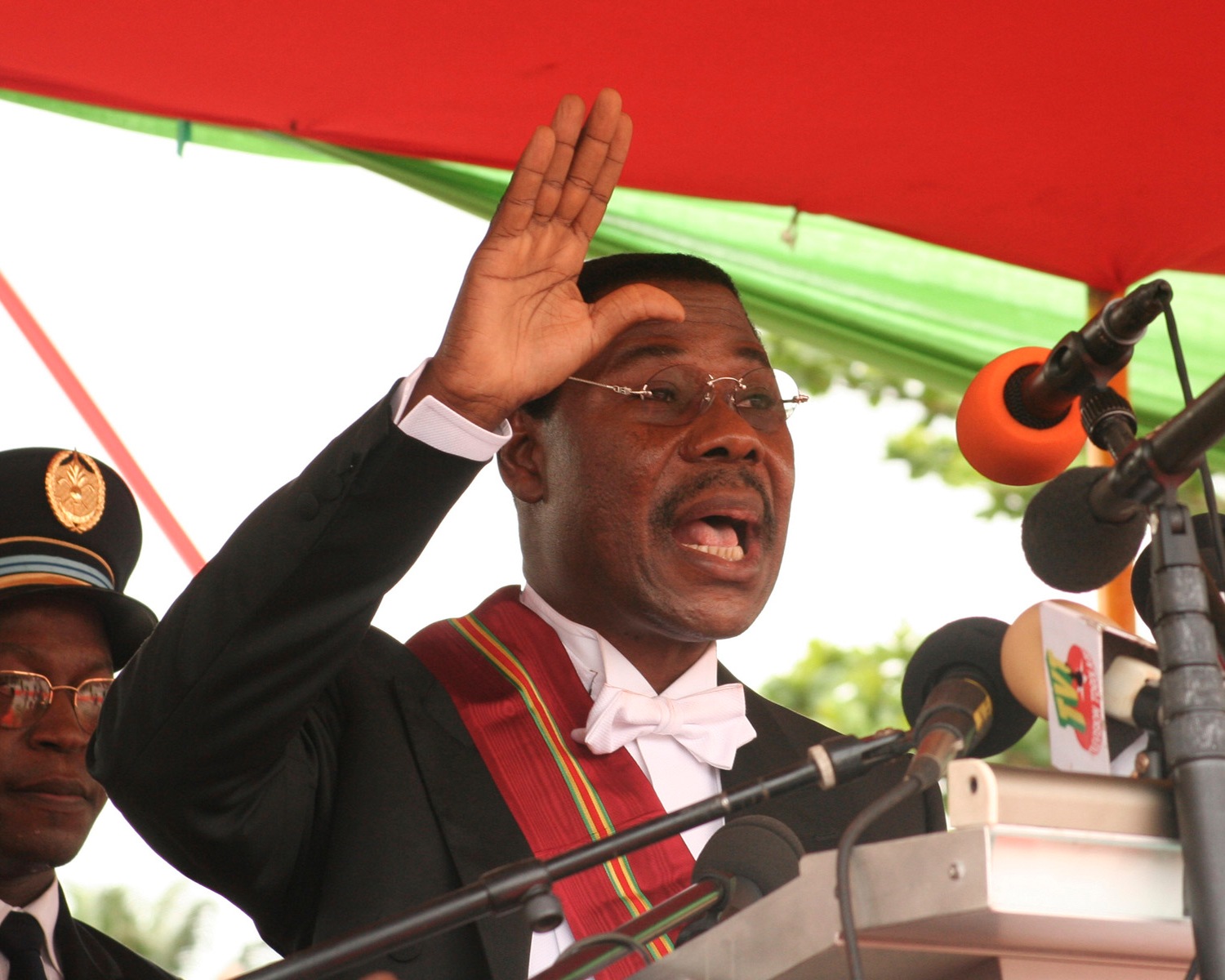|
Union For Future Benin
The Union for Future Benin () was an electoral alliance in Benin. The alliance was made up of a coalition of political parties which were part of the Presidential Movement - a movement of supporters of Mathieu Kérékou who had won the controversial 2001 presidential elections. The Union for Future Benin supported Kérékou in the parliamentary elections held on 30 March 2003 and won 31 out of 83 seats. In this election, Karamou Fassassi was elected to the National Assembly of Benin as a candidate of the Union for Future Benin. He then ran in the March 2006 presidential election, claiming that he wanted to defend Kérékou's legacy; he lost to Boni Yayi. The most important of the member parties were the Action Front for Renewal and Development () and the Social Democratic Party The name Social Democratic Party or Social Democrats has been used by many political parties in various countries around the world. Such parties are most commonly aligned to social democracy as the ... [...More Info...] [...Related Items...] OR: [Wikipedia] [Google] [Baidu] |
Benin
Benin, officially the Republic of Benin, is a country in West Africa. It was formerly known as Dahomey. It is bordered by Togo to the west, Nigeria to the east, Burkina Faso to the north-west, and Niger to the north-east. The majority of its population lives on the southern coastline of the Bight of Benin, part of the Gulf of Guinea in the northernmost tropical portion of the Atlantic Ocean. The capital is Porto-Novo, and the seat of government is in Cotonou, the most populous city and economic capital. Benin covers an area of , and its population in was estimated to be approximately million. It is a tropical country with an economy heavily dependent on agriculture and is an exporter of palm oil and cotton. From the 17th to the 19th century, political entities in the area included the Kingdom of Dahomey, the city-state of Porto-Novo#History, Porto Novo, and other states to the north. This region was referred to as the Slave Coast of West Africa from the early 17th century due ... [...More Info...] [...Related Items...] OR: [Wikipedia] [Google] [Baidu] |
Mathieu Kérékou
Mathieu Kérékou (; 2 September 1933 – 14 October 2015) was a Beninese politician who served as president of the People's Republic of Benin from 1972 to 1991 and the Benin, Republic of Benin from 1996 to 2006. After seizing power in a military coup, he ruled the country for 18 years under an officially Marxist–Leninist ideology, before he was stripped of his powers by the National Conference of 1990. He was defeated in the 1991 Beninese presidential election, 1991 presidential election but was returned to the presidency in the 1996 Beninese presidential election, 1996 election and controversially 2001 Beninese presidential election, re-elected in 2001. Military background Kérékou was born in 1933 in Kouarfa village,"Après 29 ans de pouvoir, le Président Kérékou tire sa ré ... [...More Info...] [...Related Items...] OR: [Wikipedia] [Google] [Baidu] |
2001 Beninese Presidential Election
Presidential elections were held in Benin on 4 March 2001, with a second round run-off on 18 March. They controversially resulted in the re-election of Mathieu Kérékou for a second term. Kérékou's rival Nicéphore Soglo, who had been president from 1991 to 1996, failed in his bid to reclaim the presidency; although he qualified to participate in the second round of the election against Kérékou, he refused to do so, alleging electoral fraud. Adrien Houngbédji, the parliament speaker and third-placed candidate, also refused to participate in a second round. As a result, Kérékou faced fourth-place candidate Bruno Amoussou, who was planning minister and had already given his support to Kérékou, in the second round; Kérékou won an easy victory with 84% of the vote. After the election, it was revealed that the Titan Corporation, a defense contractor based in the United States, had illegally provided $2 million to Kérékou's re-election campaign. The company pleaded guilty ... [...More Info...] [...Related Items...] OR: [Wikipedia] [Google] [Baidu] |
2003 Beninese Parliamentary Election
Parliamentary elections were held in Benin on 30 March 2003. African Elections Database The result was a victory for the parties of the pro-government supporting , which won 52 of the 83 seats. Results References Elections in Benin |
National Assembly (Benin)
The unicameral National Assembly () is Benin's legislative body. The National Assembly in Porto-Novo as it exists today was formed in 1990. The current National Assembly has 109 members, who are directly elected through a system of party-list proportional representation and serve five-year terms. History The first parliament of an independent Benin was defined by the Constitution of 28 February 1959 and lasted from April 1959 to November 1960. It was chaired by Justin Ahomadegbé Tomètin. With a 1960 and a 1964 constitution, two new National Assemblies were enacted each time. The implementation of the Basic Law of 9 September 1977 radically altered the parliament. It was renamed the Revolutionary National Assembly (ANR) and lasted until February 1990. The High Council of the Republic was formed in February 1990 to democratize the country and was chaired by Archbishop Isidore de Souza. A new constitution was passed on 11 December 1990 which formed the basic structure of the cu ... [...More Info...] [...Related Items...] OR: [Wikipedia] [Google] [Baidu] |
2006 Beninese Presidential Election
Presidential elections were held in Benin on 5 March 2006. Long-term president Mathieu Kérékou, who had led the country for all but four years since 1972, was barred from running for a third term. The constitution not only stipulated an absolute two-term limit, but required presidents to be 70 years old or younger when taking office; Kérékou had turned 70 in 2003. In July 2005, Kérékou signalled that he would not seek to change the constitution, as has been done in some other African countries, so that he could run again. Kérékou's long-time rival Nicéphore Soglo was also barred from standing due to his age. With the men who had been among the country's leading political figures since the return of democracy barred from running, the campaign had a level of openness and unpredictability not common for African presidential elections. Since no candidate won a majority, a second round was held between the two leading candidates on 19 March; Yayi Boni won the election and t ... [...More Info...] [...Related Items...] OR: [Wikipedia] [Google] [Baidu] |
Thomas Boni Yayi
Thomas Boni Yayi (born 1 July 1951) is a Beninese banker and politician who was the president of Benin from 2006 to 2016. He took office after winning the March 2006 presidential election and was re-elected to a second term in March 2011. He also served as the chairperson of the African Union from 29 January 2012 to 27 January 2013. Early life and banking career Boni was born in Tchaourou, in the Borgou Department in northern Benin, then the French colony of Dahomey. He received his education first in the regional capital of Parakou before moving on to earn a master's degree in economics at the National University of Benin. He then pursued an additional master's degree in economics at the Cheikh Anta Diop University in Dakar, Senegal, and then earned a doctorate in economics and politics at the University of Orléans in France and at Paris Dauphine University, where he completed a doctorate in economics in 1976. At the end of his education, Boni began a long career in bank ... [...More Info...] [...Related Items...] OR: [Wikipedia] [Google] [Baidu] |
Action Front For Renewal And Development
The Action Front for Renewal and Development () is a political party in Benin founded in 1994. It is the party Mathieu Kérékou belonged to during his second presidency, which lasted from 1996 to 2006.Agnès Oladoun Badou"Partis Politiques et Stratégies Électorales à Parakou", Department of Anthropology and African Studies, Johannes Gutenberg University of Mainz, 2003 . Kérékou stood as party's candidate in the presidential election of March 4 and 18 March 2001, winning 45.4% of the popular vote in the first round and 84.1% in the second round. The second round was boycotted by the main contenders. In February 2004, Daniel Tawéma, who was then Minister of the Interior, was elected as the party's secretary general, succeeding Jerome Sacca Kina Guezere. [...More Info...] [...Related Items...] OR: [Wikipedia] [Google] [Baidu] |
Social Democratic Party (Benin)
The Social Democratic Party () is a political party in Benin. The PSD was founded in 1990. Running together with the National Union for Solidarity and Progress (UNSP) in the Beninese parliamentary election, 1991, February 1991 parliamentary election, the PSD won 9.8% of the vote and eight out of 64 seats in the National Assembly of Benin, National Assembly. The PSD's first ordinary congress began on 29 January 2000; this was the party's first congress in ten years. 700 delegates participated in the congress, and at the congress a national executive committee, composed of 19 members, was elected. Bruno Amoussou was elected as the party's president on this occasion, while Felix Adimi was elected as vice-president and Emmanuel Golou was elected as secretary-general. Amoussou was the PSD candidate in the Beninese presidential election, 2001, 2001 presidential election. He won 8.6% of the popular vote in the first round, held on 4 March 2001, and placed fourth. The second and third ... [...More Info...] [...Related Items...] OR: [Wikipedia] [Google] [Baidu] |

